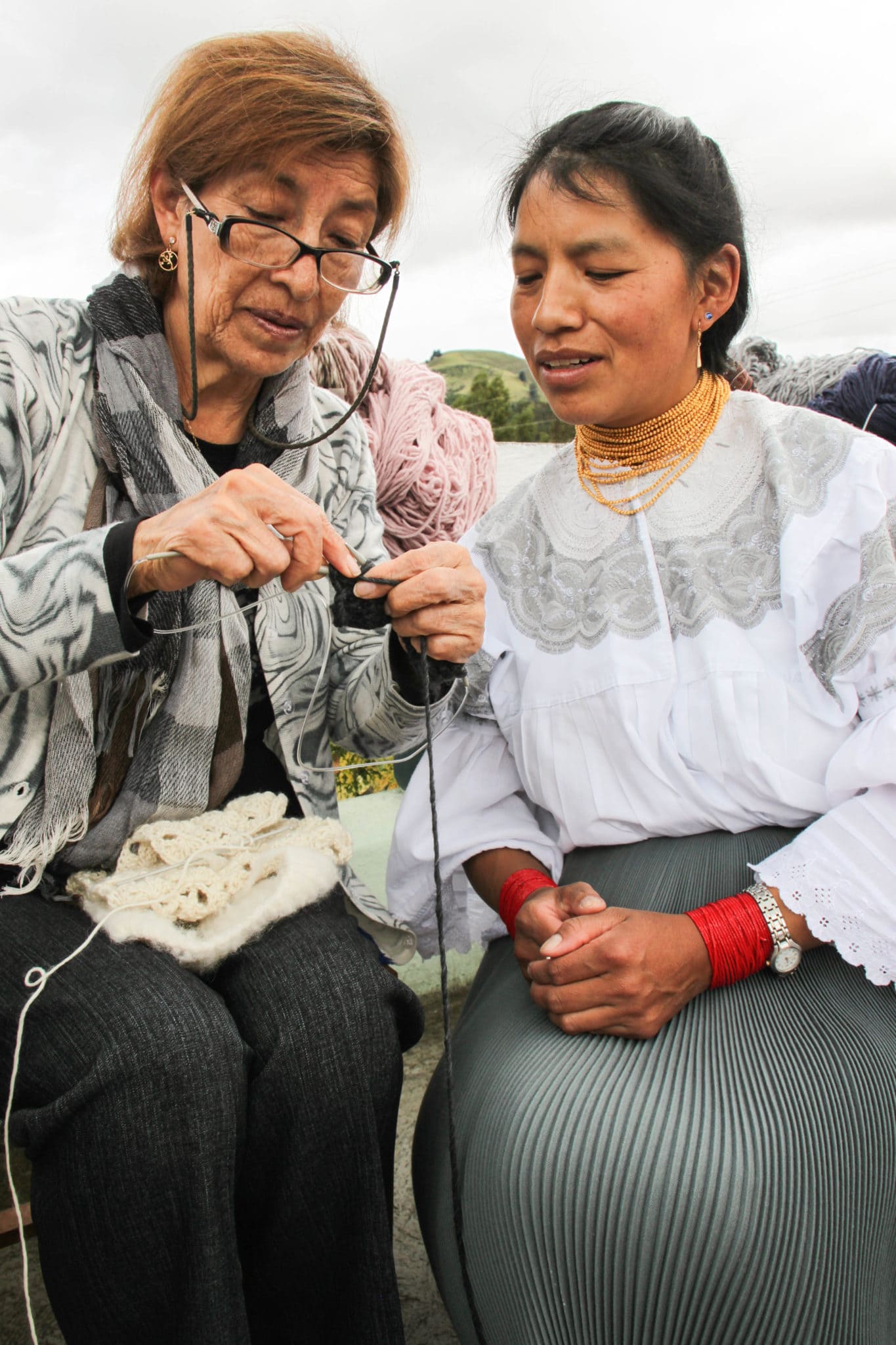
Responsibility & Commitment
Thirty years ago, we got acquainted with Ecuador. Today we have whole villages working for us: over 700 women knitting our garments. Our own label INTI was born in 1992. We live in Ecuador half the year, the other half we spend in The Netherlands, visiting stores, events, fairs, and companies. Our collection is available in around 120 stores throughout The Netherlands.
Sharing
Our materials and garments are made of the highest quality baby alpaca wool from Peru. Each knitter gets to keep a small amount of this exclusive wool for their own use. The rest is carefully weighed and processed into INTI items. Our approach is to make beautiful things and enjoy doing that. And making beautiful things takes time, which is why we only make one collection each year.
Lively community
The women we work with life in rather desolate villages. Their husbands often work in the cities and are away during the week; the children are at school. Working on INTI items gives these women a sense of purpose and their own source of income. They are free to plan their workload according to their needs and wishes. This resulted in some very lively communities of women exchanging instructions, experiences, and techniques, checking stuff ad working together. Some of them have been knitting for us for over twenty years now. We think that is very special.
INTI Knitwear commitment with RAS
In our commitment to sustainability, human and animal rights, and reducing our carbon footprint, we exclusively collaborate with suppliers who have secured certifications aligned with the Textile Exchange Non-Profit organization. The Responsible Alpaca Standard RAS) serves to protect both the well-being of alpacas and the ecosystems they inhabit.
Responsible Alpaca Standard
The Responsible Alpaca Standard (RAS) is a voluntary standard – created by Textile Exchange – that requires all sites, from alpaca farms through to the seller in the final business-to-business transaction, to be certified. RAS farmers and ranchers must meet animal welfare, land management, and social requirements. RAS is a standard listed at Textile Exchange non profit organisation.
Criteria
– Textile Exchange is setting the criteria for agricultural practices that are better for animals and the land. Gives the industry a tool to recognize farming best practices.
– Ensures that alpaca wool comes from farms that take a progressive approach to land management and respect the Five Freedoms of animal welfare.
– Ensure strong chain of custody for certified materials as they move along the supply chain.
How it works
– Tracing alpaca fibers from farm to final product.
– Animal welfare protection
– The Five Freedoms of animal welfare are protected with reference to standards and best practices around the world.
– Land health preservation
– Progressive methods of land management are practised on RWS farms, protecting soil health, biodiversity, and native species.
– Social welfare protection
– Social welfare, working conditions, and the health and safety of workers are addressed.
– Chain of custody
– Certification makes sure the identity of the RAS alpaca fibre is maintained from the farm to the final product.
– Credible certification
– A professional, third-party certification body audits each stage in the supply chain.
– Confident communication
– Only products that meet all requirements may be labelled with the RAS logo.
– Stakeholder engagement
– The RAS is managed with the input of farmers, animal welfare experts, land conservation experts, brands, and retailers from all parts of the globe.
– To read more about RAS, please visit Textile Exchange.

